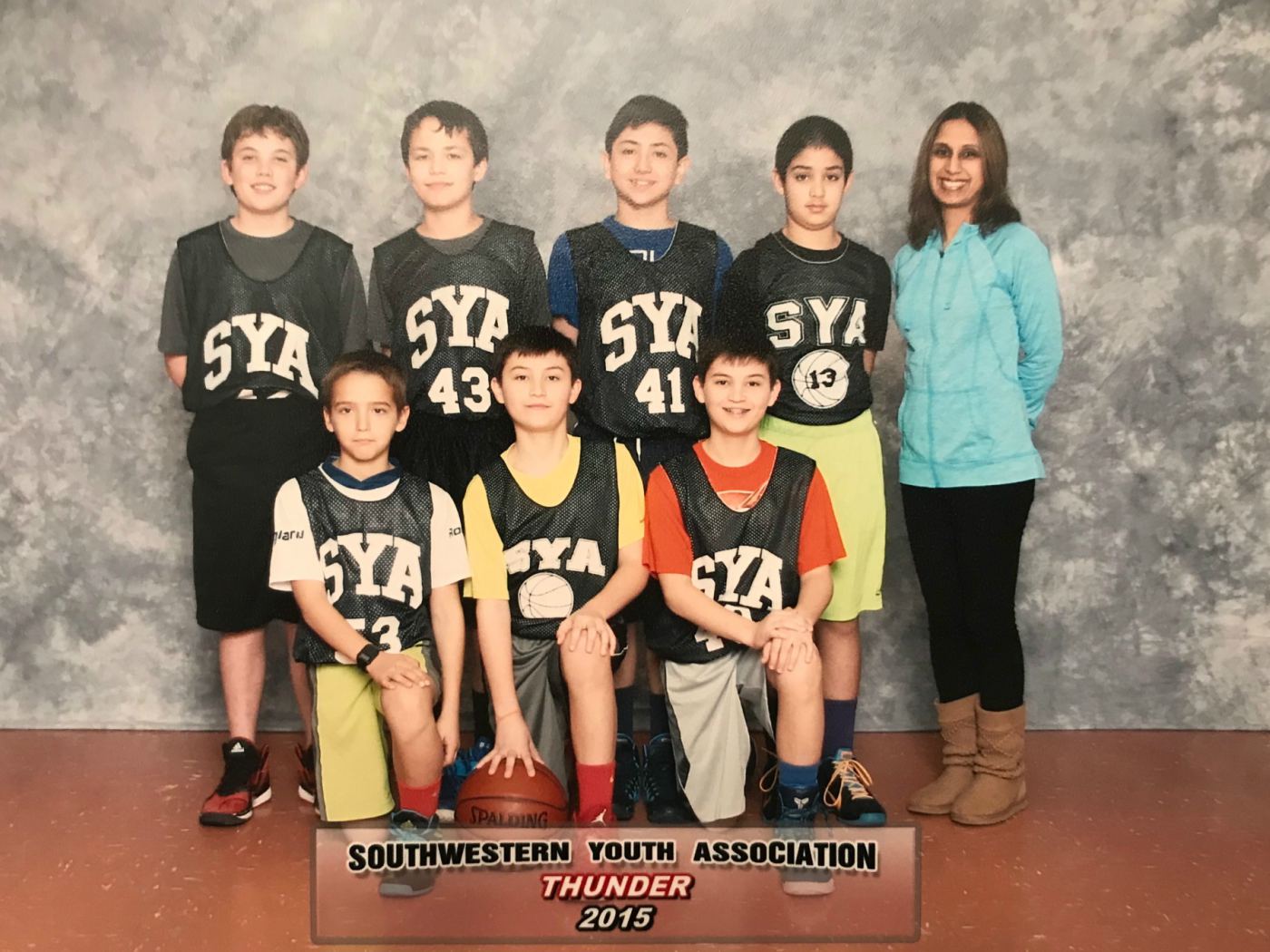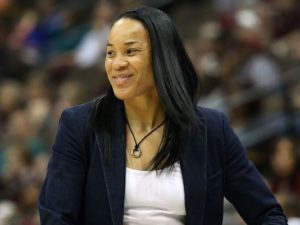Close your eyes for a moment and picture just about any youth sport. Now shift your gaze to the sidelines and scan for the coach. You’re imagining a man, right?
Don’t blame your imagination for being sexist, because statistically speaking, men are far more likely to be on the sidelines. Of the 6.5 million adults coaching youth teams up to age 14, only 27% are women.
Which is a shame, says Scott Lancaster, former director of the NFL’s youth football development program and author of Fair Play: Making Organized Sports a Great Experience for Your Kid, because women are “the greatest untapped resource in youth sports.”
Indeed, while it’s true most youth coaches are men, it turns out that in many ways (sorry guys), women make better coaches. In this post we’ll look at why women make great coaches as well as some of the impediments (real and imagined) that are standing in the way of more women picking up a whistle.
Women Coaches By the Numbers
First, the numbers. Despite our nation’s success in getting more girls involved in sports thanks to legislation like Title IX, the number of women participating as coaches remains stubbornly small and, in some cases, shrinking.
One study found that only 13.4% of youth soccer coaches are women, and that number falls to 5.9% for baseball (football and basketball fare even worse).
Why are women, who are so intimately involved in just about every other aspect of their children’s lives, such rarities in youth coaching ranks?
#1: Lack of Confidence
Because organized sport for women was far less commonplace (and often deemed less important) even a generation ago, many women feel ill-prepared to coach a sport, particularly one they may not have played. (Ironically, before Title IX 90% of girls’ coaches were women – today that figure is just 43% and falling.)
Some of this is attributed to the ‘confidence gap,’ a well-known habit of men to feel more self-confidence – deserved or not – than women. Women’s pro basketball star Monique Currie points out that the weakest player on an NBA roster often feels just as confident as the team’s best player. “For women, it’s not like that.”
But the truth for youth coaches – particularly with kids under the age of 9 – is that mastering the complexities of a sport is far less important than understanding how to be a good teammate, learning a sport’s fundamentals, working well with others, sportsmanship, etc.

“My goals have always been to focus on the basics, ensure the kids are actually developing a love for the sport, and put each player in a position where she can excel,” says Barb Keiser, whose youth soccer teams rack up win after win through intelligent, team-oriented ball. “It’s always about supporting and nurturing each other. As the saying goes, we’re only as strong as our weakest link. The confidence will come.”
As for learning (and teaching) those fundamentals? Many youth organizations (not to mention the Internet) offer a variety of support services and training materials for new coaches. And there are plenty of coaches – male and female – who are glad to help out newcomers.
Why Women Coaches Rock: Because women are naturally more inclusive in their decision making (and also may be nervous in that first season), they’re more likely to be bring a humble, open-mindedness to learning from others, ultimately making them better coaches.
#2. Intimidation
Coaching can be intense, especially with parents barking from the sidelines, complicated rulebooks, overzealous competing coaches, and a gaggle of kids looking to you for guidance in the heat of competition.
But the truth about youth sports is that everyone is a bit anxious or intimidated when they first get started – even those big, barking men who, you know, have big-barking-men reputations to uphold. Most women coaches happily discover that their young charges do quite well on the field or in the gym precisely because they are coached in values like teamwork, sportsmanship, and having fun.

“I was a bit nervous initially,” says Nishi Langhorne, who not only was new to coaching basketball, but had never played the sport. “But parents were generally appreciative that I was giving my time to coach their boys. And once they realized I was informed and organized, any anxiety they felt was relieved.”
Why Women Coaches Rock: Women want to win like the rest of us, but their priorities often are to ensure the kids are enjoying themselves, are learning the basics, and feel they are contributing to the team. And because women usually are more patient and lower-key than their male counterparts, their players are apt to feel more confident and less fearful of making mistakes.
#3. Sexism/Stereotyping
Ok, this one isn’t so much of an illusion. Unfortunately, sexism and stereotyping do still exist. Keiser recalls the time a competing coach strode over to her male assistant coach to congratulate him on their win. Only when her assistant pointed Keiser’s way and said, “She’s the head coach,” did the chagrined coach apologize and congratulate her as well.
So prevalent is this attitude and so often do coaches, game officials, and parents presume virtually any nearby male is coach, that a women’s coaching group created a t-shirt slogan for their members that reads, “This is what a coach looks like.”
The good news is that such stereotypes are starting to crumble, particularly as women coaches demonstrate just how good they can be. And while there no doubt are some Neanderthals out there who still believe women don’t belong on the sidelines, most parents in youth sports are open to women coaches.

“I felt like my team parents were very supportive and the league did a great job of helping me,” said Keiser. “I’d tell any woman who is on the fence that it’s not as hard as it looks. Be as brave as you want your kids to be and get out there. You’ll love it!”
Indeed, many youth clubs are desperate for volunteers and are happy to accept anyone willing to coach, including rookie women coaches. Leagues often offer coaches’ clinics and other forms of training, and the Internet offers a treasure trove of videos and coaching resources. “I watched other coaches, instructional videos on YouTube, and also found that taping my own games and watching them after the fact was valuable,” said Langhorne.
Why Women Coaches Rock: Women who coach are teaching all kids – boys and girls – to accept women in such roles, helping to reverse and eradicate those outdated stereotypes. It’s difficult to think of a life lesson more important for young minds.
#4. R-E-S-P-E-C-T
Some women worry that players (and their parents) won’t respect them in the role of coach the same way they would a man.
But the reality is that most kids are accustomed to seeing all adults as authority figures, not just me. Meaning that a woman who steps onto the field or court with a clipboard, a whistle, and a will to coach will quickly earn the respect of her players.

“The kids definitely became more receptive to me the more I coached,” said Langhorne. By the time I coached my final season, kids were actually trying to get on my team because they’d heard I was a successful coach and that my teams had fun.”
And that’s a big pointer: at the end of the day, kids want to have fun (we call them ‘games’ for a reason). As for disrespectful parents? Keiser’s advice is to treat them the way any coach would: “tell them to butt out and let you do your job.” (Leagues also have rules for dealing with problem parents.)
“An ideal world would be where the parents stay out of it and just celebrate their kids for what they are doing rather than their mistakes or what the parents perceive as mistakes,” added Keiser. “One of the best things about coaching is watching these kids develop and discover their strengths – parents should celebrate that instead of always demanding more.”
Why Women Coaches Rock: Although still largely anecdotal, our own investigations into youth coaching find that women coaches end up being extremely popular with their players and parents alike, often being asked to return year after year to coach the same kids.
Women Coaches as Role Models
For millions of boys and girls, coaches often play an enormously important role in their lives. Meaning that women coaches have a chance to play an important role in our culture that ripples far beyond a playing field or gym floor.
By the age of 14, for example, girls begin abandoning sports at twice the rate of boys. And given all the risks we now know about kids who don’t play sports – higher rates of truancy, dropping out of school, drug abuse, pregnancy – many experts wonder whether that is in part because they see so few women in coaching roles.
Research done by Harvard Business School found that women managers (and, by extension, coaches) bring a “more participative, androgynous, and transformational leadership style.” Men, by contrast, “adopt a top-down, command and control style.” The result: girls coached by men are less likely to become coaches, thereby creating a cycle of male-only coaching.
But girls aren’t the only ones adversely affected by male-only coaches. As Tom Farrey, head of the Sports & Society Program at the Aspen Institute points out, women coaches are equally important for boys. Without women coaches, he says, “boys are denied the ability to see women operate in leadership roles that males most respect. This has deep implications for our society as boys grow into adulthood, work with, and decide whether to empower women.”
The X Factor
If being a positive female role model for girls and boys alike isn’t enough to get women off the fence and into coaching, what might? How about the fact it’s fun?
“Ultimately it was an incredibly positive experience and one that I will forever see as an instrumental connection with my sons,” says Langhorne.
Echoes Keiser, “There are so many rewards. I got into coaching because of my girls, but eventually you come to love every child on your team and the experience of helping them learn to love the game and their role in it.”
Or as Motherlode writer and coach, KJ Dell’Antonia adds: What the moms in the stands or even the team moms “may be missing is that coaching is fun.”

I have read alot of blogs where males and women are being compared and seldom do I find any comparrison where men come out on top.One gets the impression that that old mother goose nursery rhymes that says what are little boys made of? Snails and puppy dog tails.What are little girls made of? Sugar and spices and all things nices.is true.
In most blogs there will be a sentence or two about the need for diversity but by not listing hardly anything good about males the blog ends up making the case for not having diversity because men come out as inferior so why should the superior women want to have equality with inferior males.